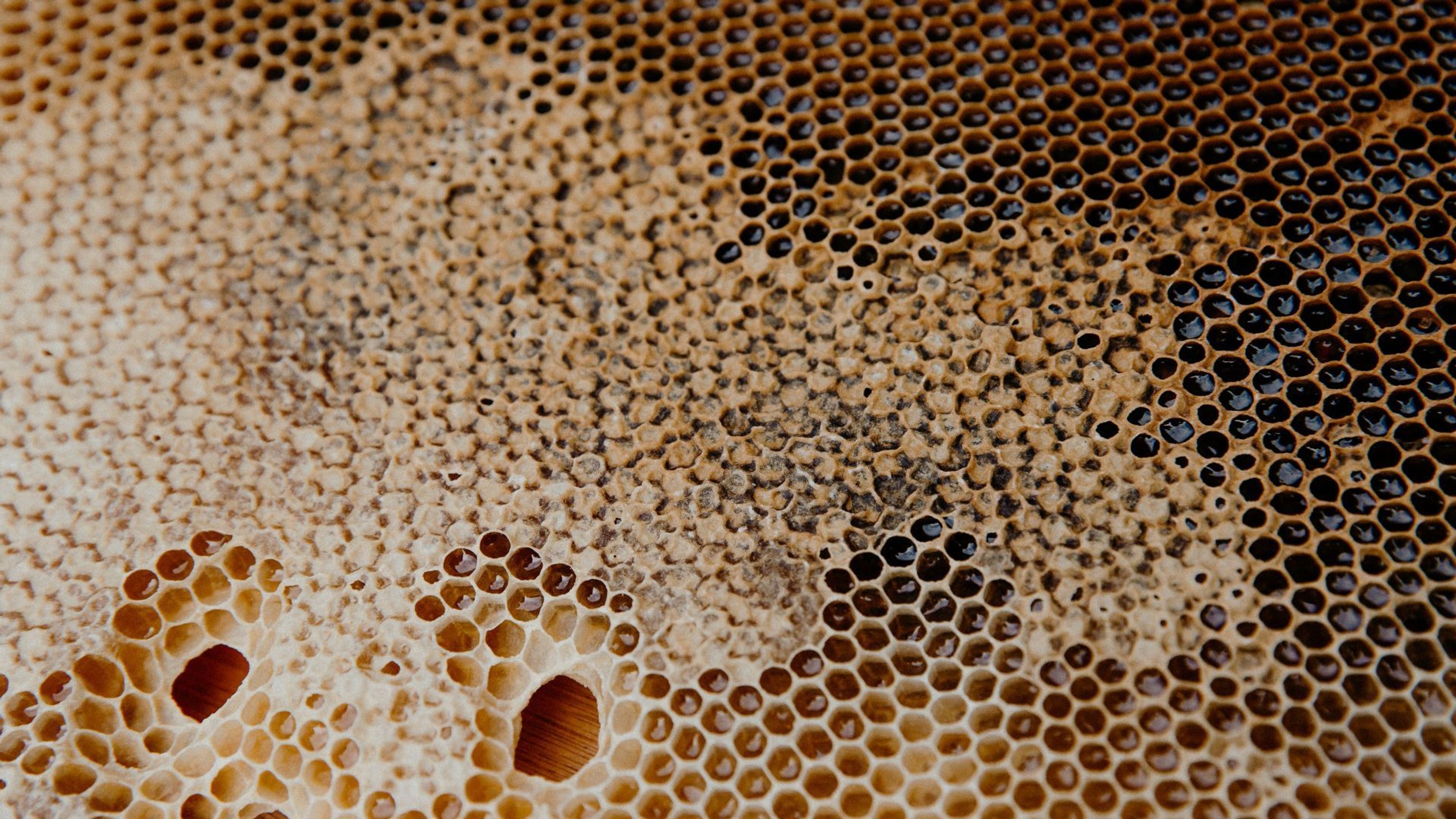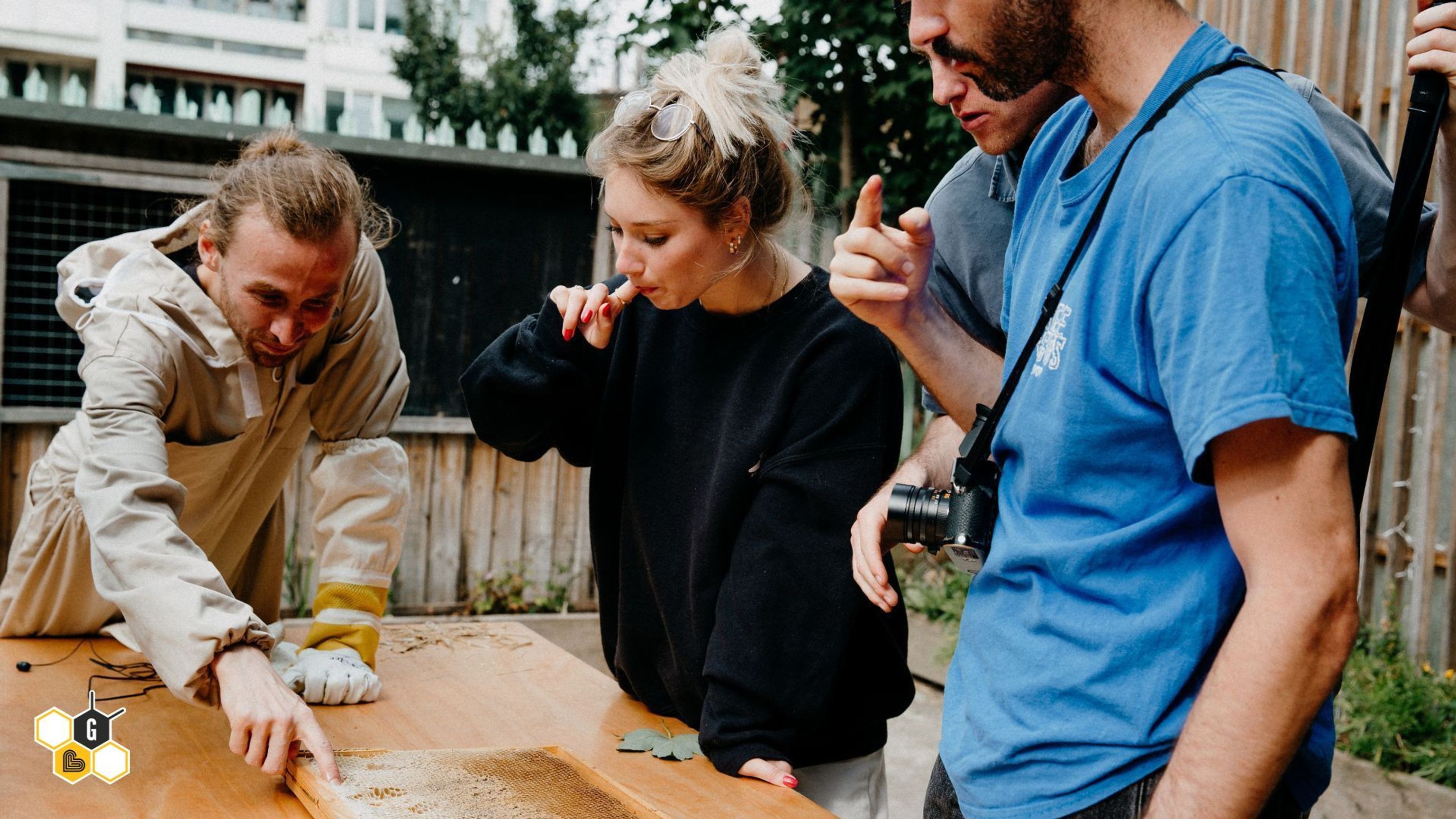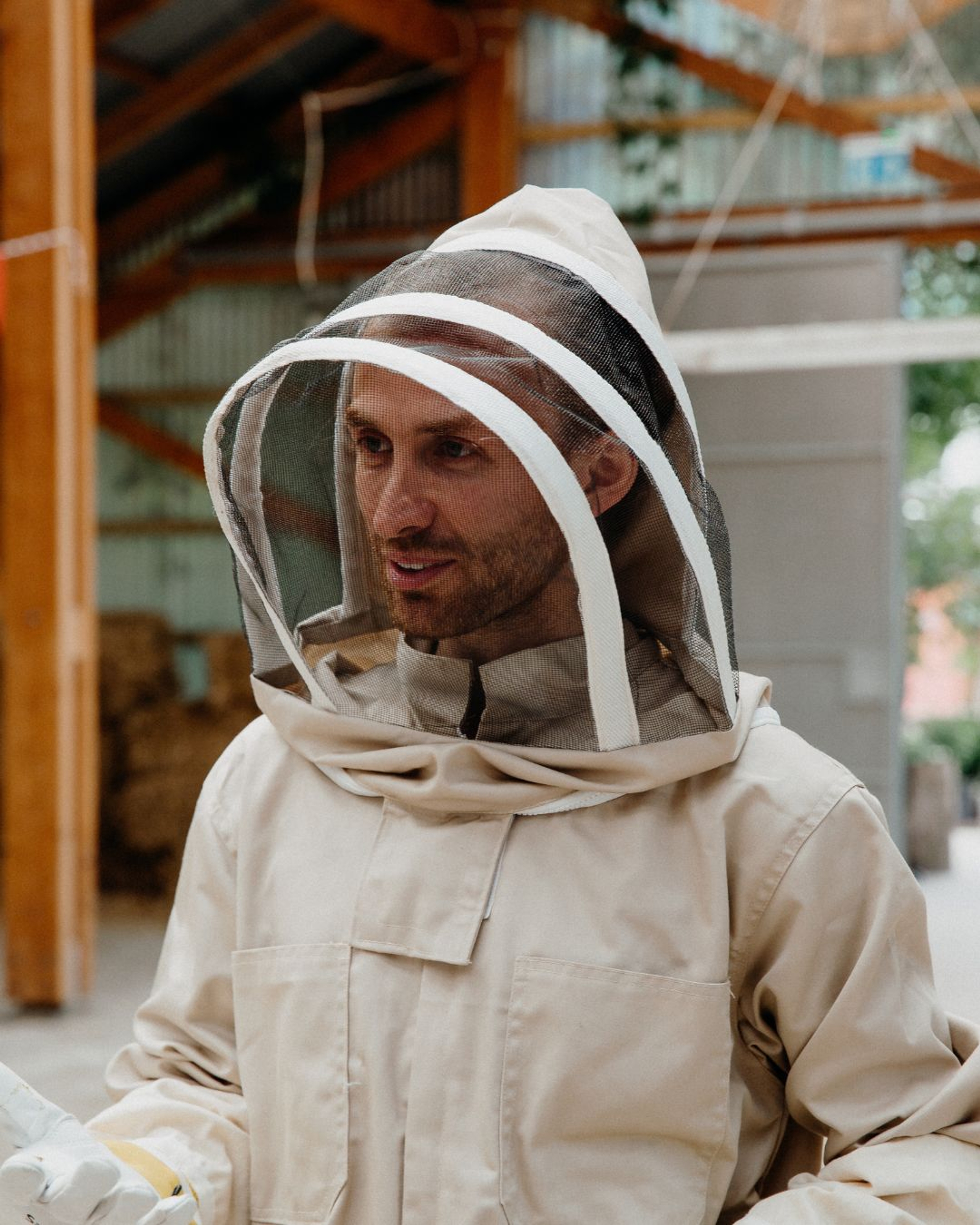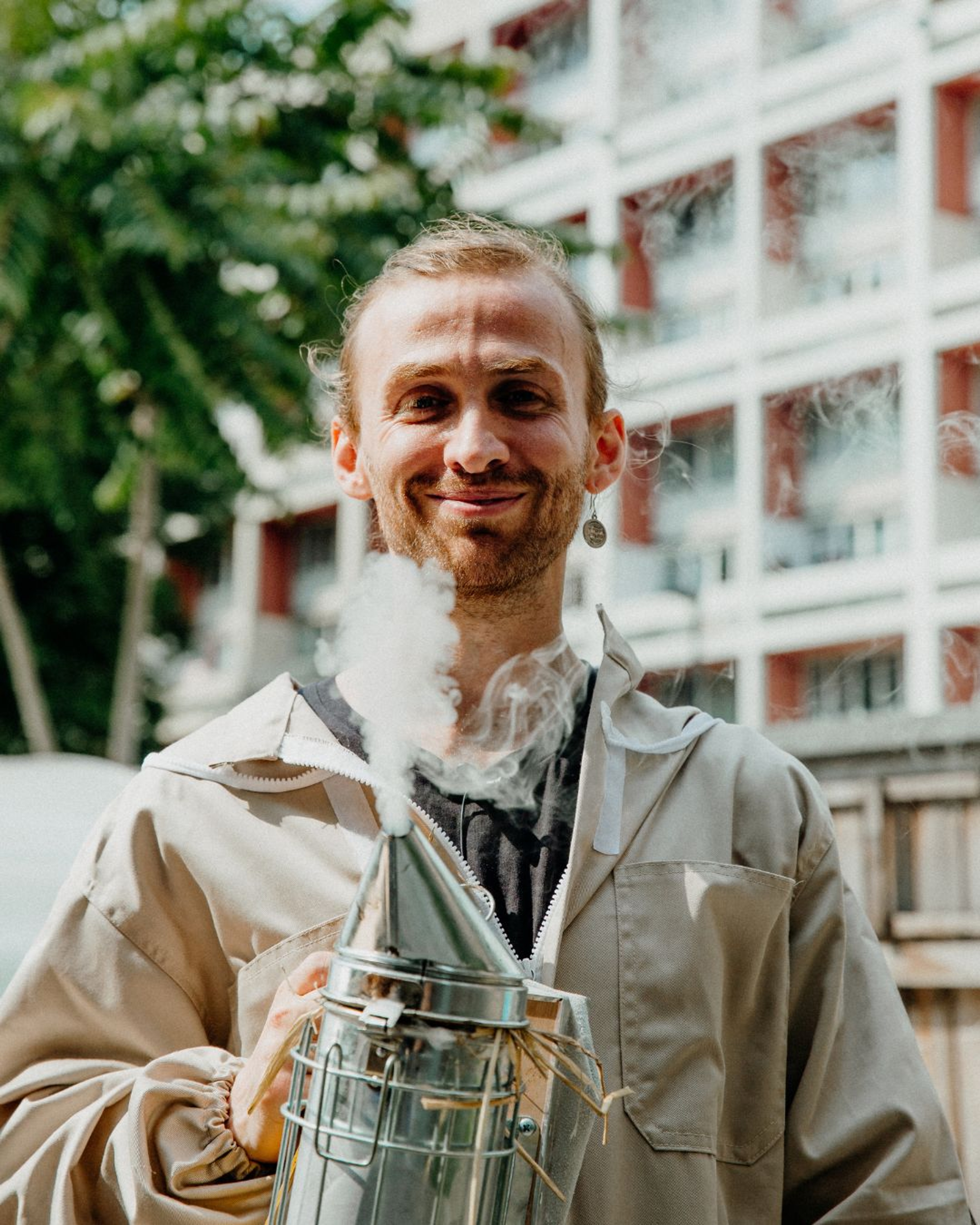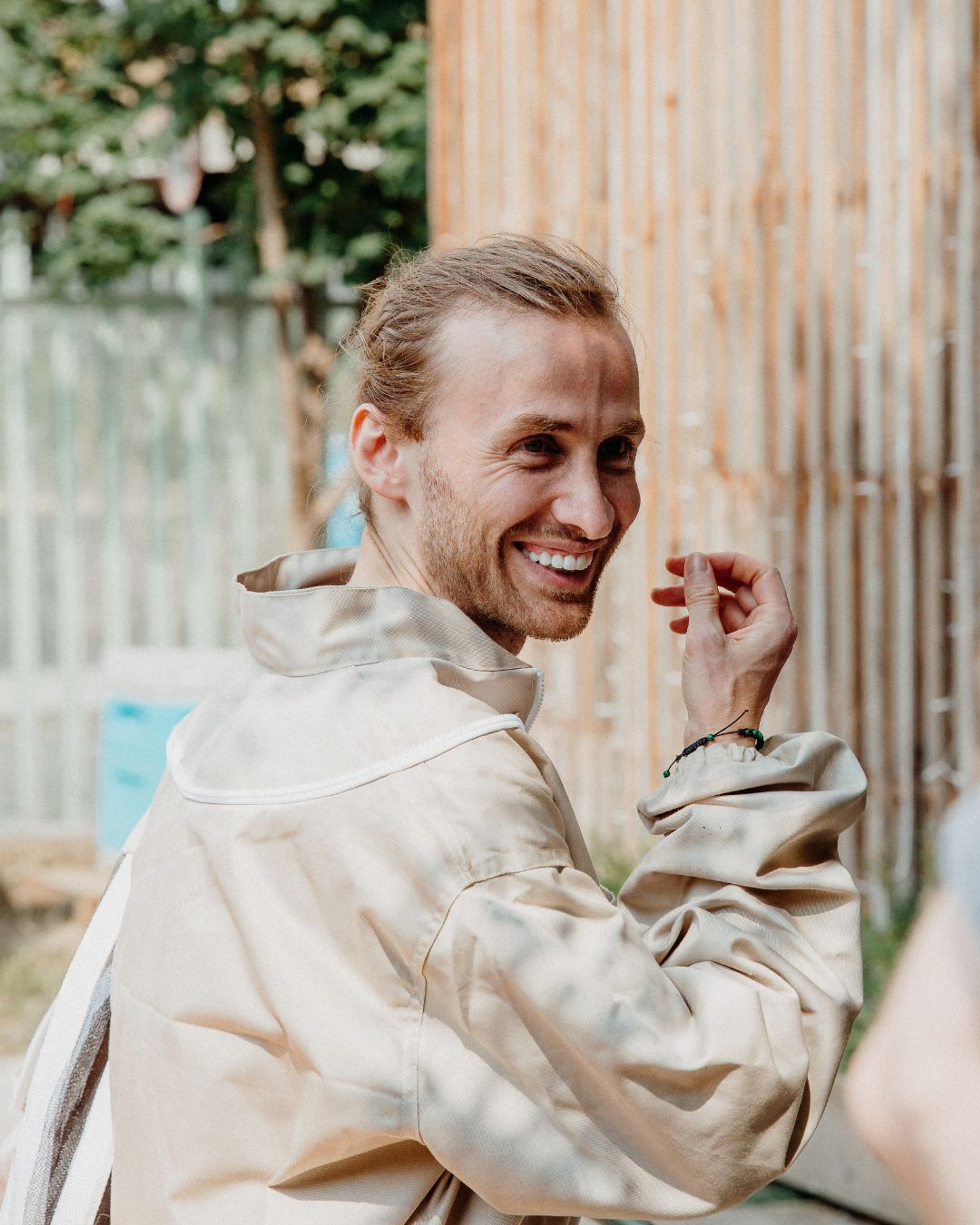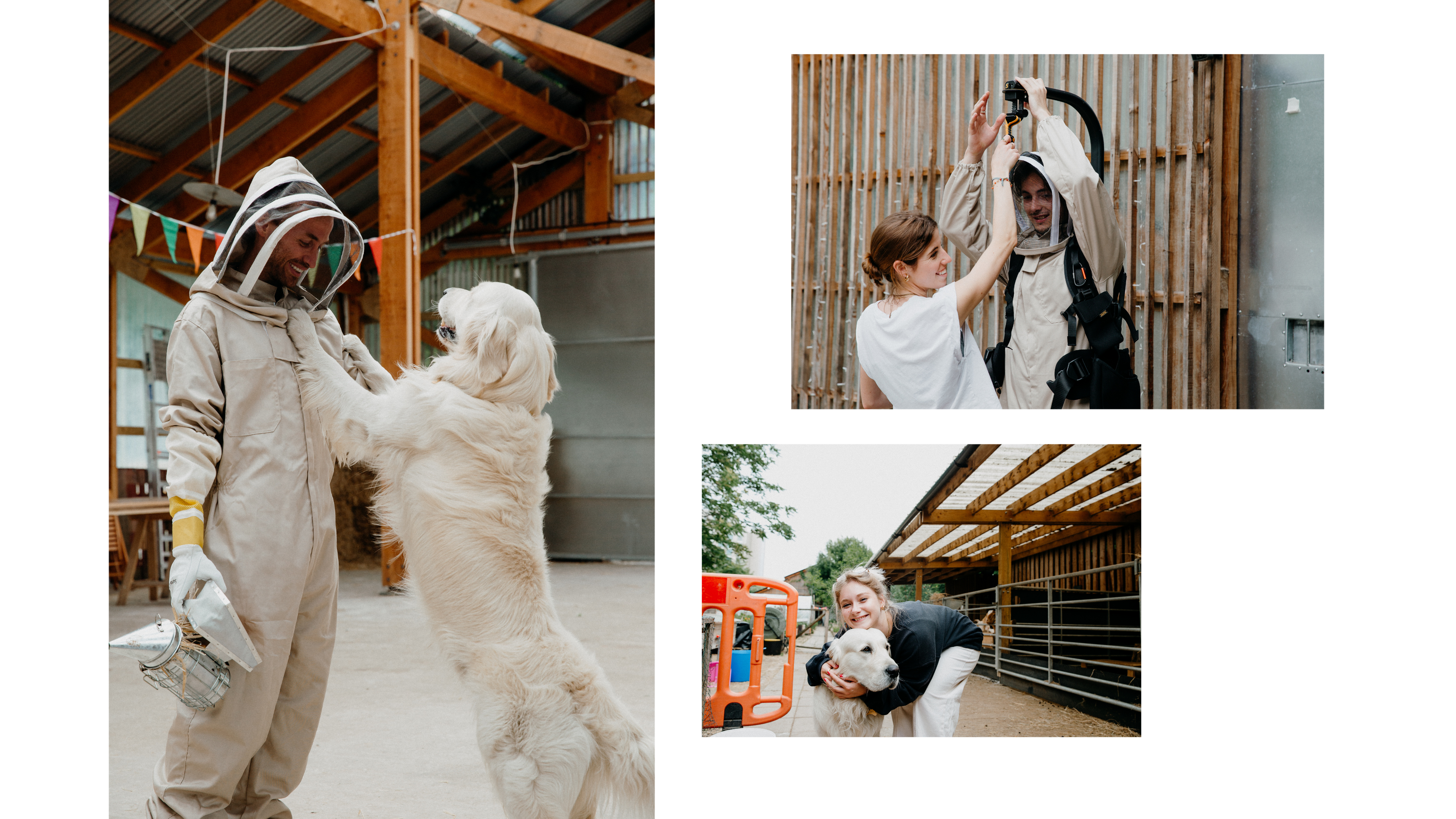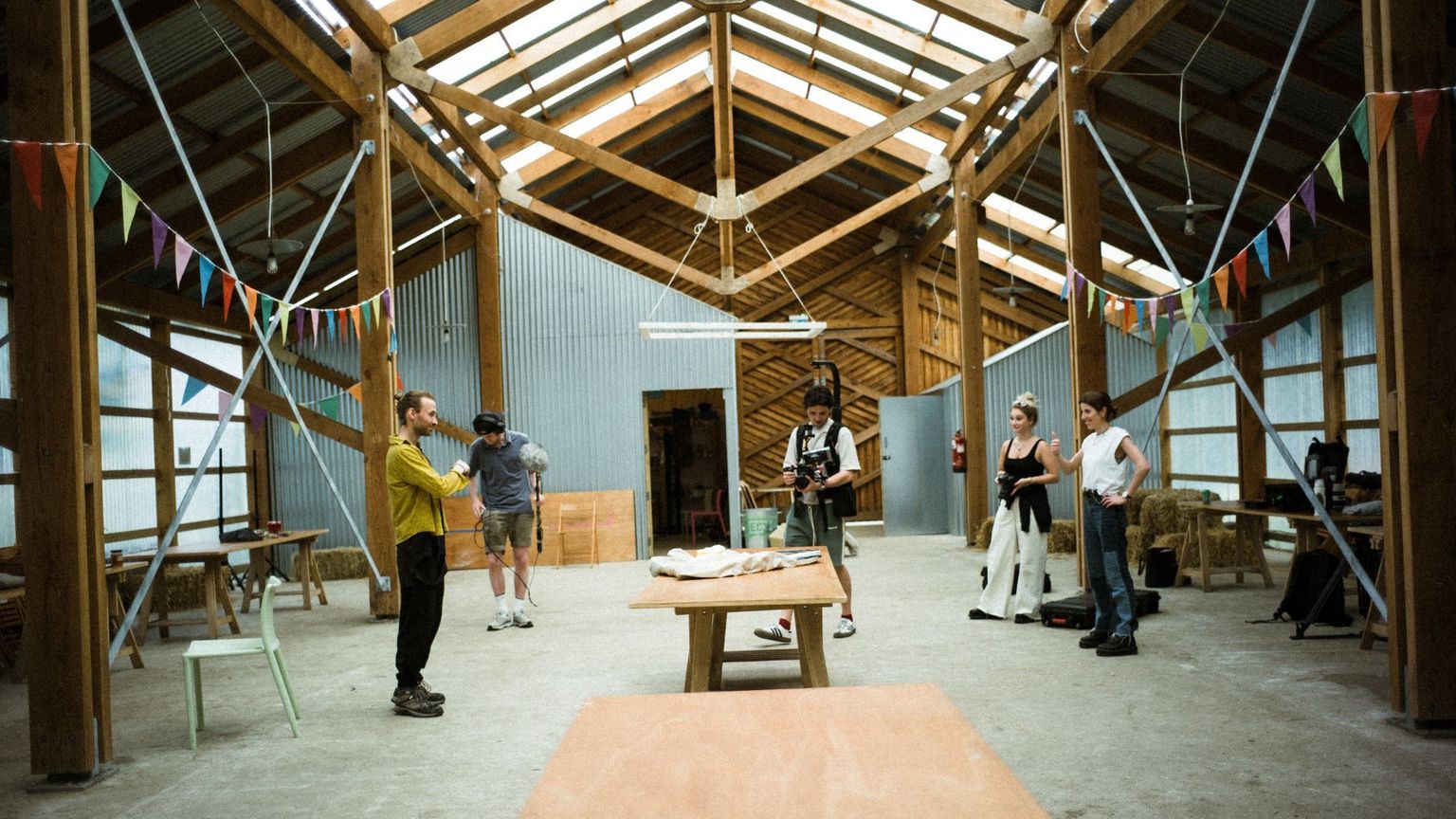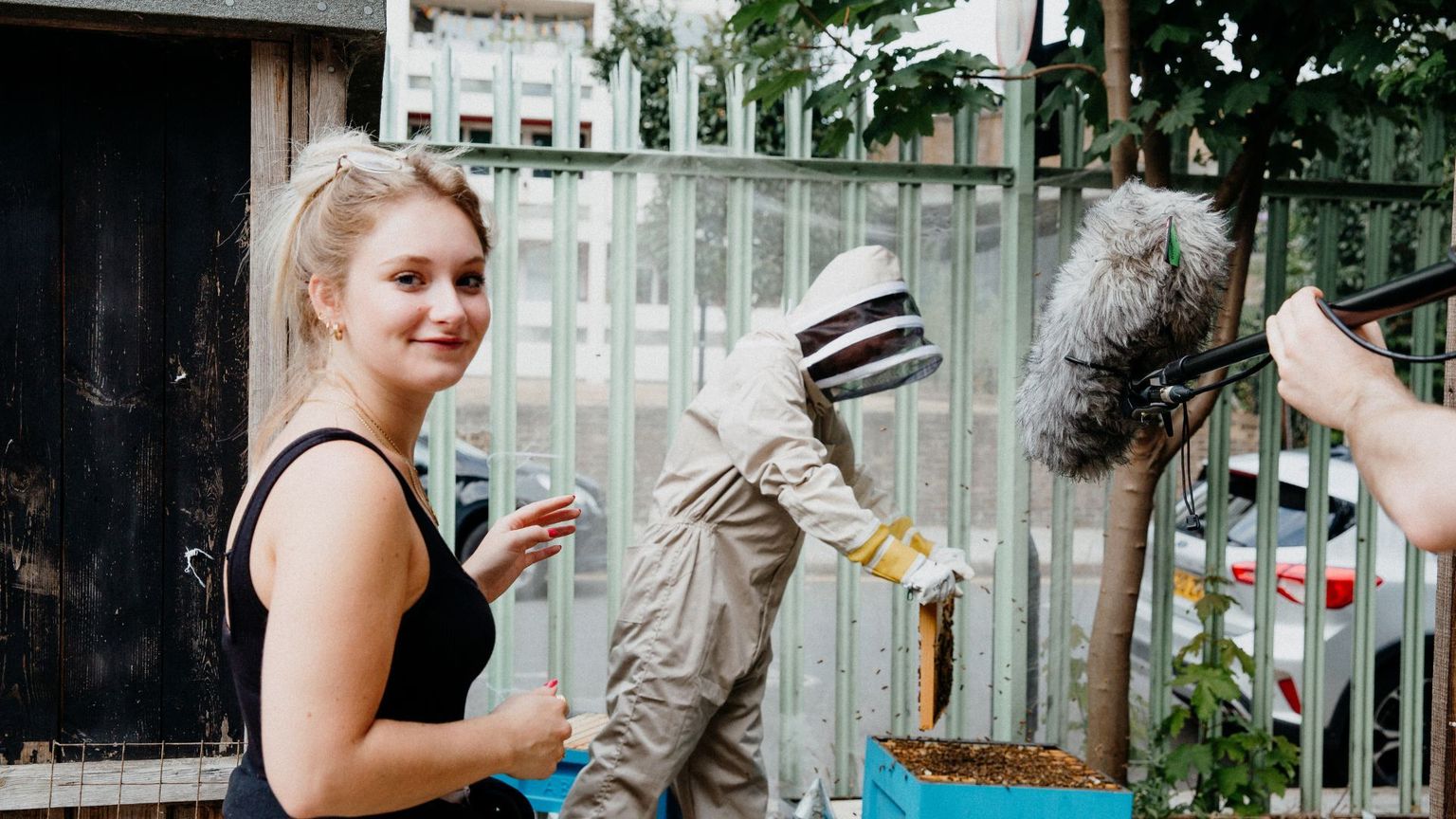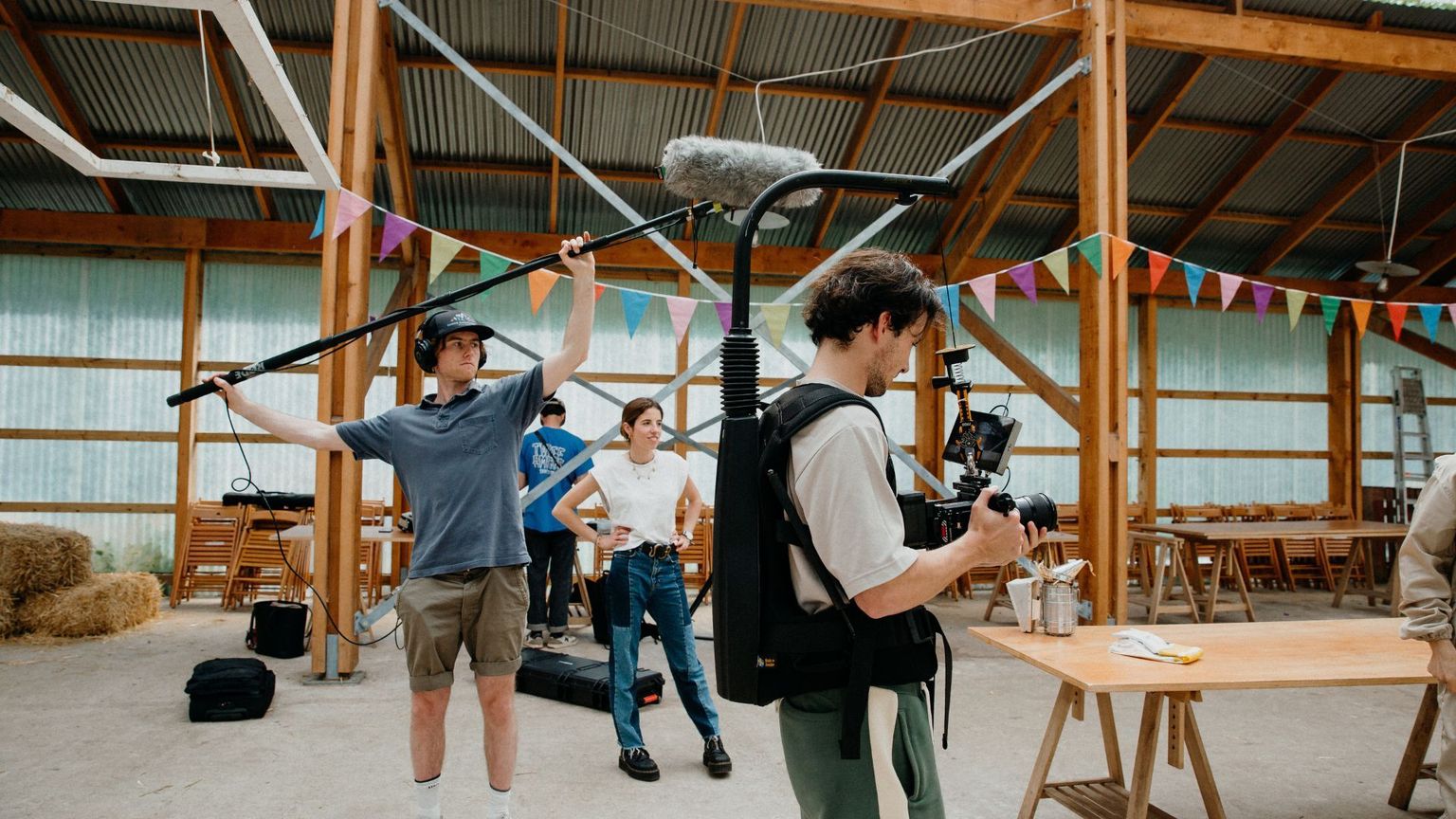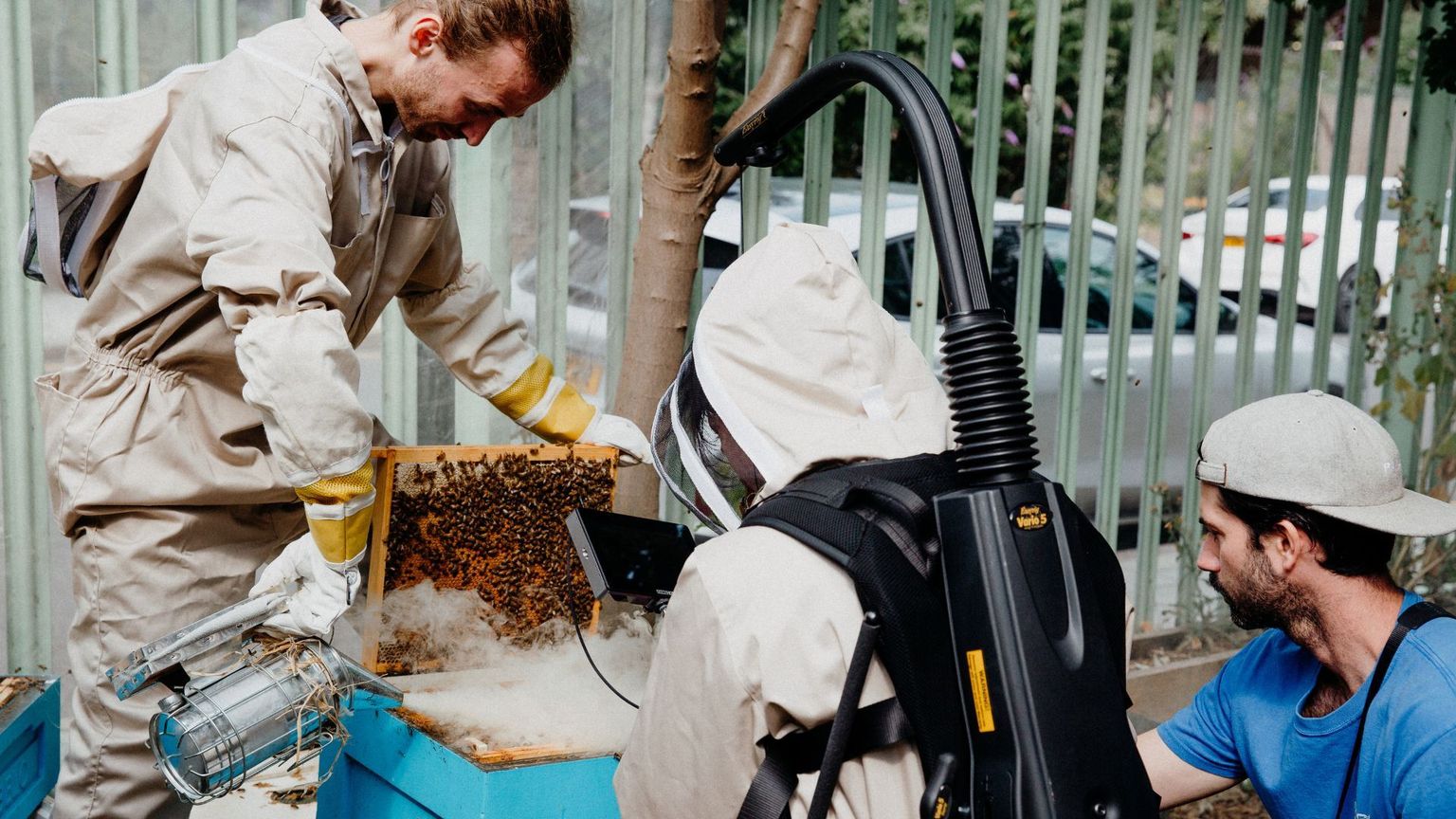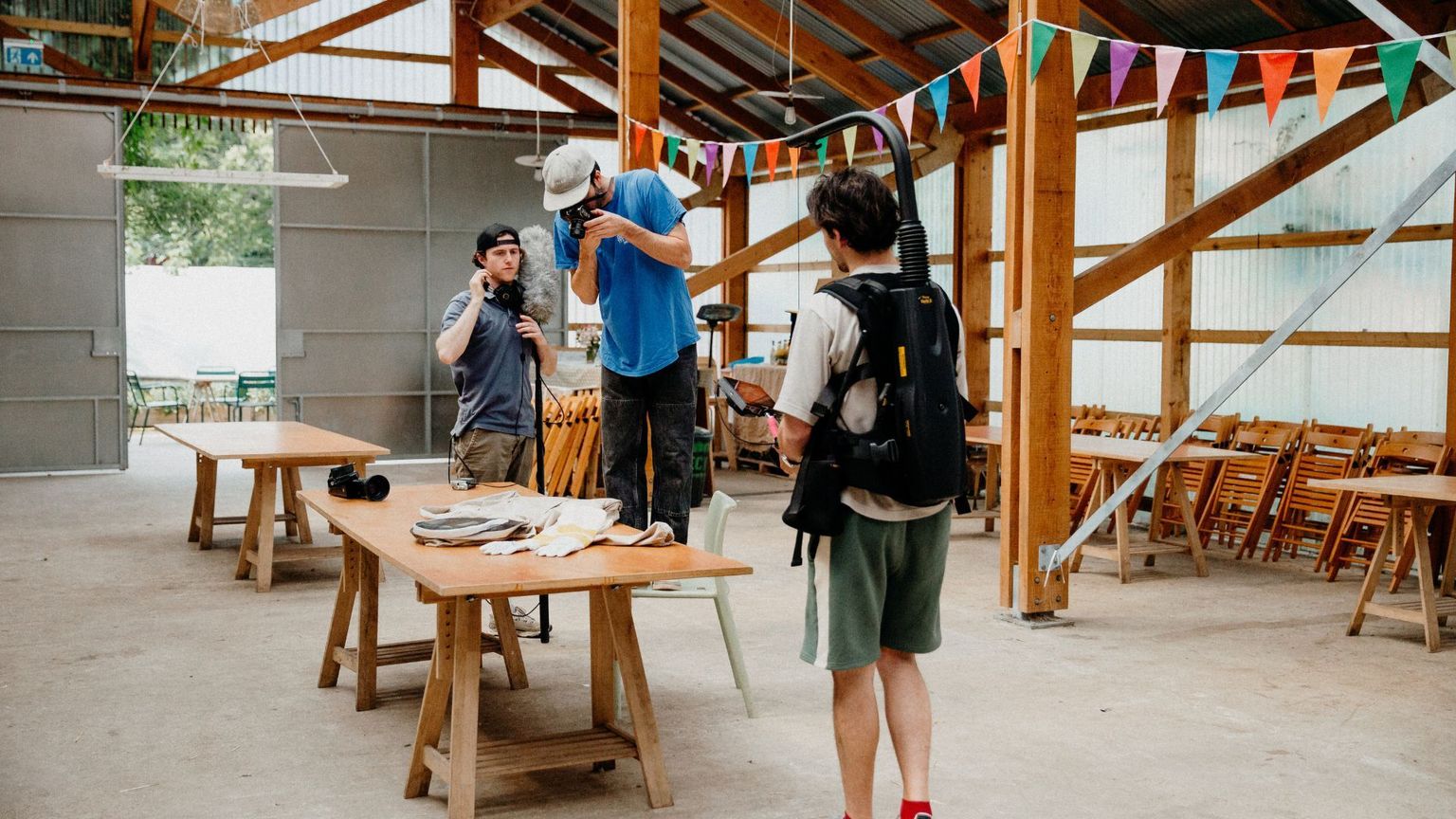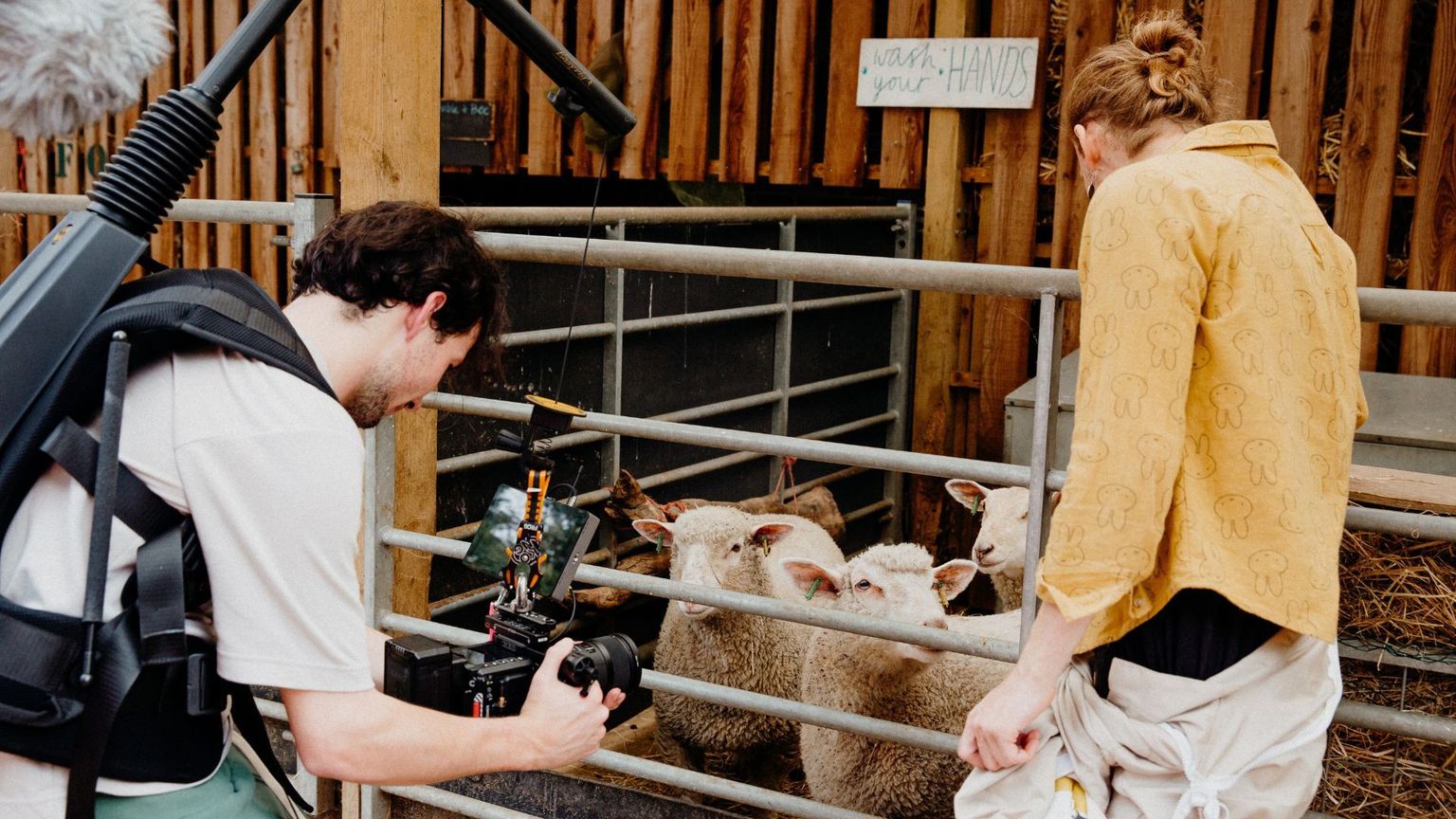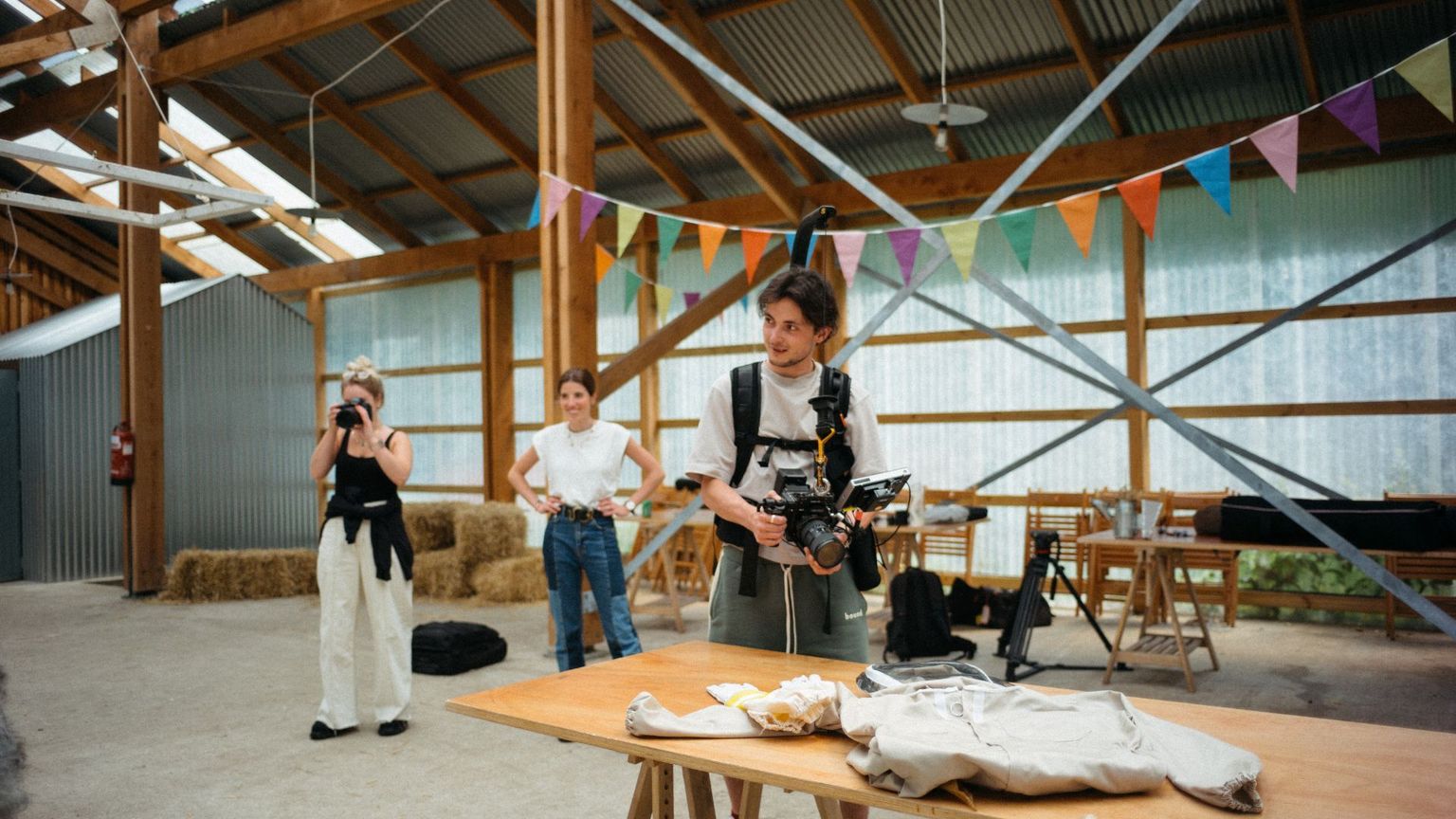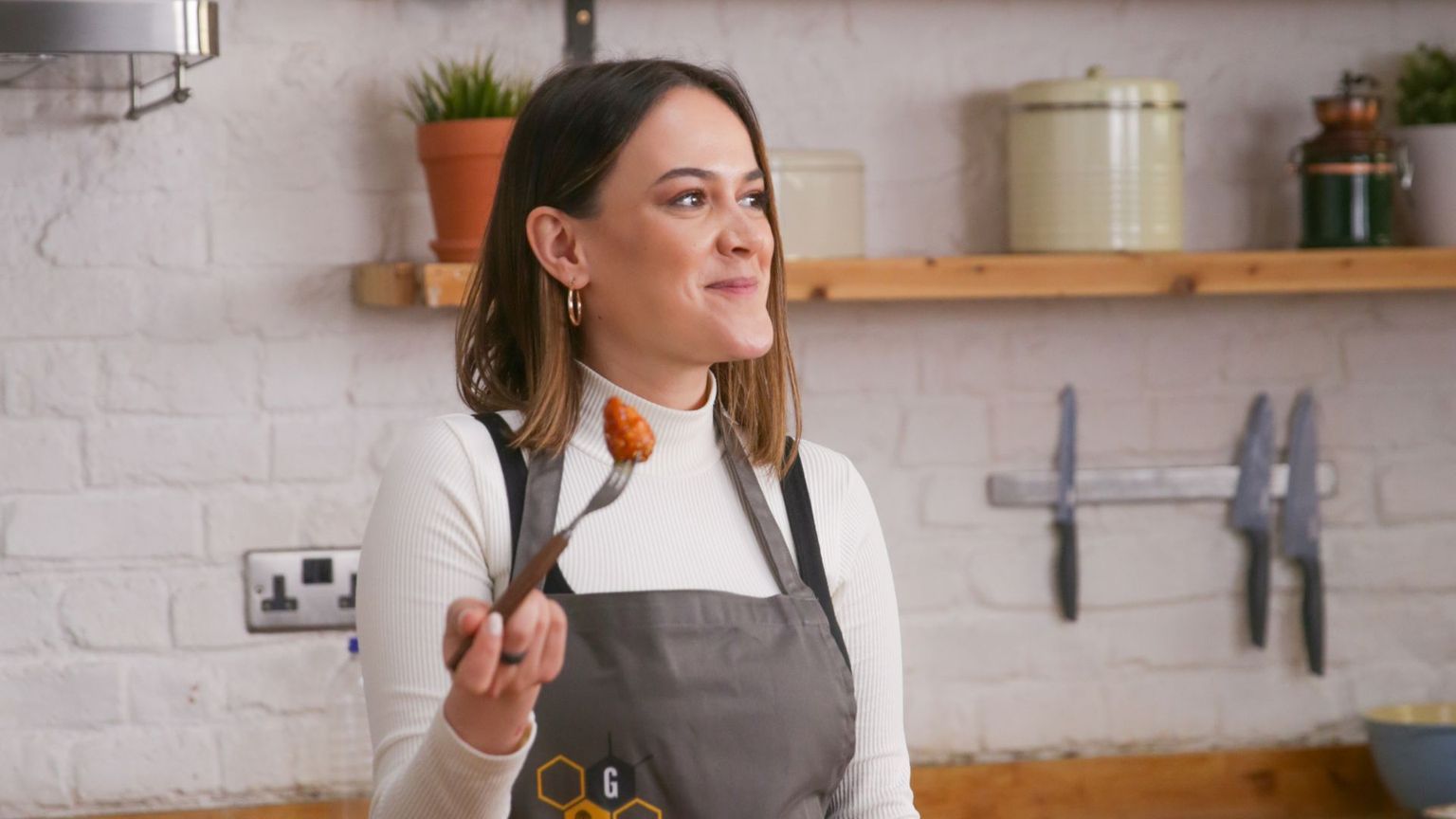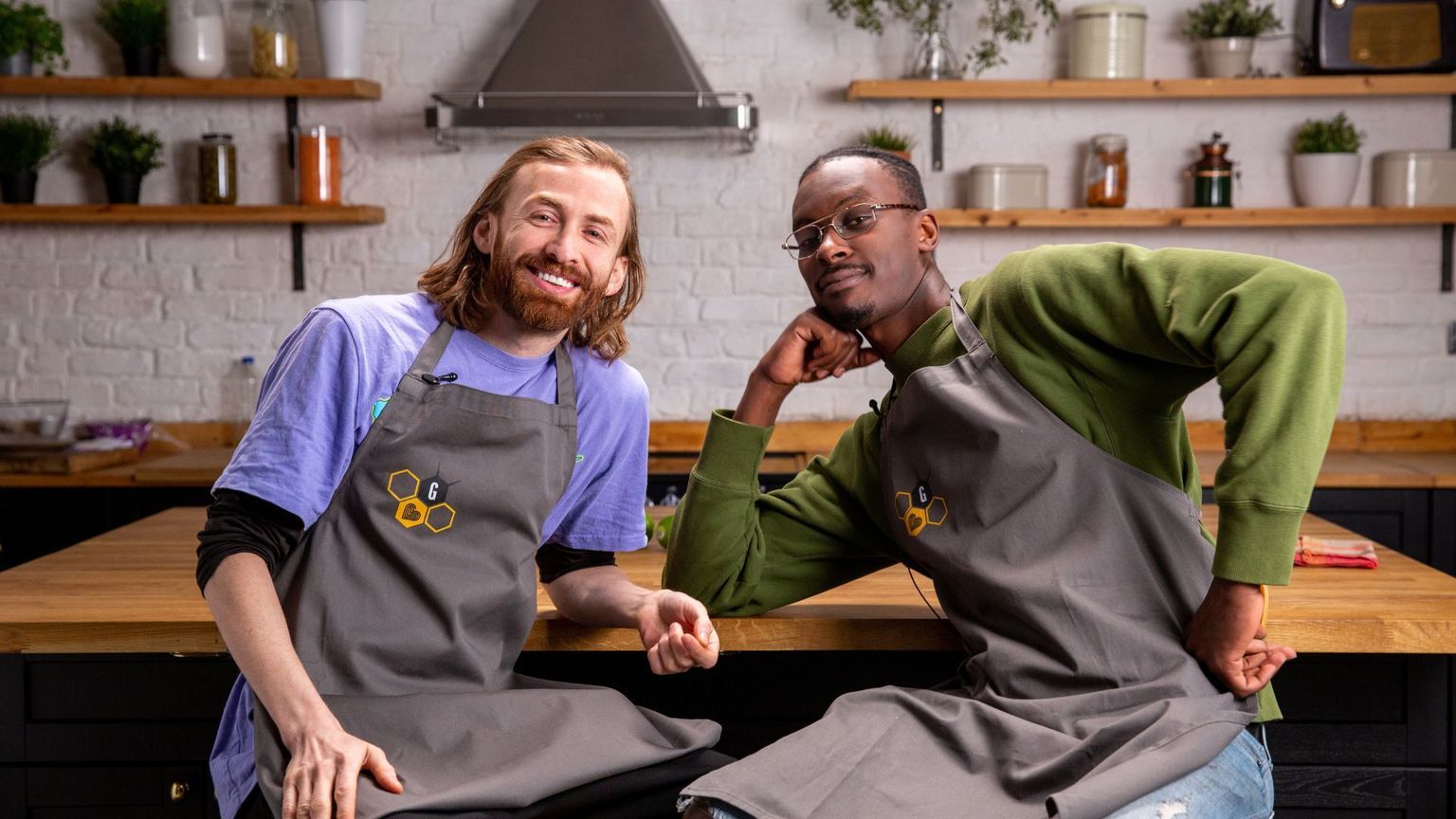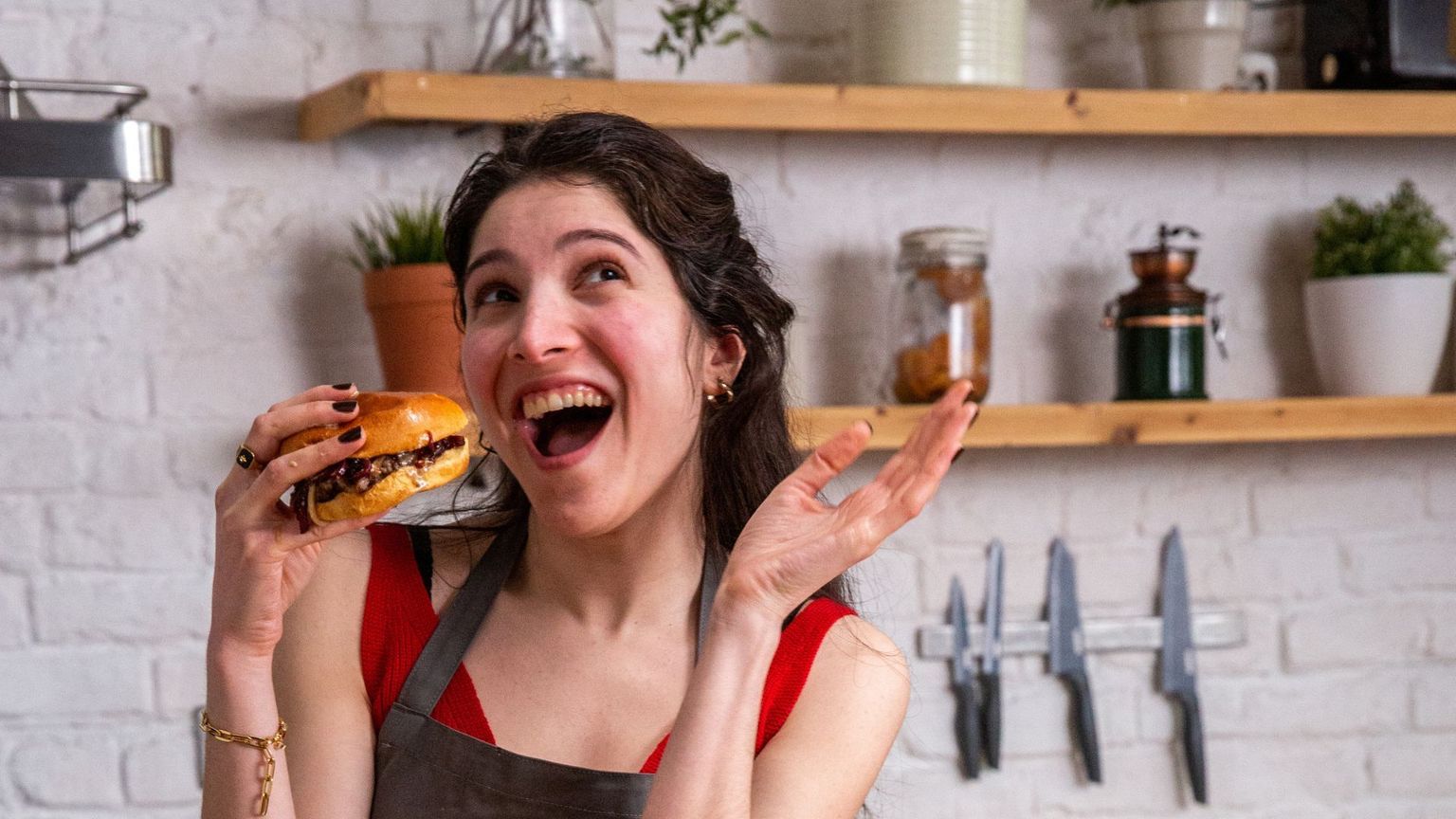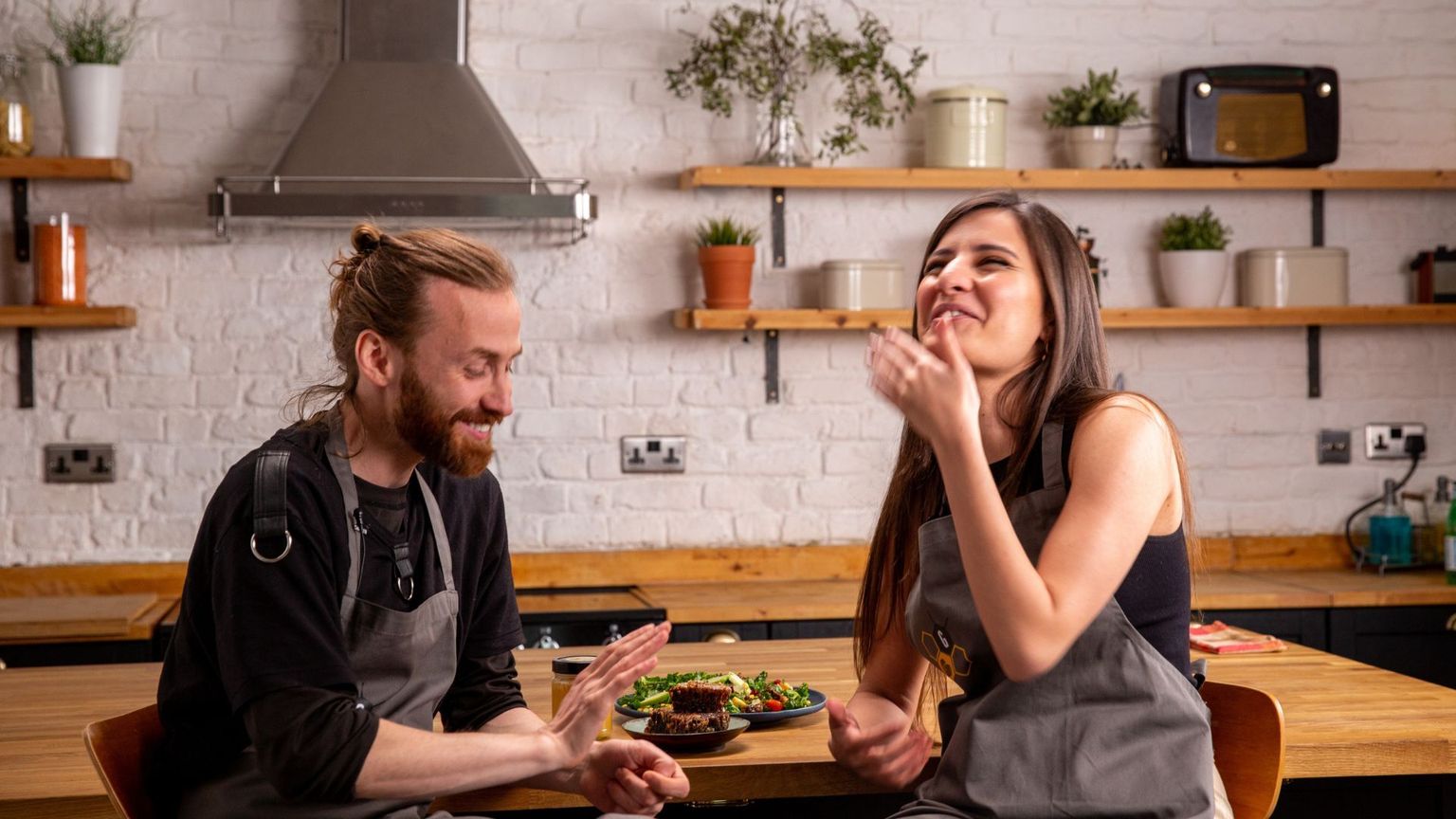Alongside working as a Creative at Gramafilm, Natalie Galvau (pictured below) spends her spare time on ekō, a collaborative biannual print and online magazine. Published in English, Arabic and Farsi it aims to serve as a platform for underrepresented voices – particularly refugees and asylum seekers.
It was through ekō that Natalie met Ali Alzein, Syrian beekeeper and founder of refugee support organisation Bees and Refugees.
When Gramafilm began to pursue its next creative passion project, brainstorming social issues and refugee organisations, Natalie instantly thought of Bees and Refugees.
Ali Alzein left Damascus in 2011 due to conflict and oppression under Syria’s current dictatorial president Bashar al-Assad, moving to the UK for hopes of a safer life. With a background in fashion retail, he started a job in department store Harrods, while also volunteering at refugee camps in Thessaloniki in his spare time. But Ali quickly became disillusioned by the fashion industry and its contrast to what he had experienced in Syria and what others were experiencing elsewhere.
Having learned basic beekeeping from his grandfather as a child, he acquired his first back-garden beehive and quickly noticed the benefits on his mental wellbeing. He was eager to pass his knowledge on to people who had been through similar experiences and, in 2020, he founded Bees and Refugees.
Empowering the Refugee Story
Bees and Refugees has quickly grown, with beehives springing up in and around London – in schools, corporations and community spaces – supporting refugees and bees through sustainable beekeeping workshops while also selling sustainable honey.
Gramafilm hoped to inspire social change through their new series of projects, so Ana Tapia, the project’s producer, felt it was important to capture the human stories behind the organisation while also tackling wider societal perceptions of refugees and asylum seekers.
From the outset, the team say it was important for them to acknowledge their responsibility as creatives when publishing sensitive issues, particularly surrounding migration, giving those at the heart of the stories the platform to shape their own narratives.

There's something so valuable about the individual narrative that is so often missed in the mass narrative of the ‘refugee crisis
There's something so valuable about the individual narrative that is so often missed in the mass narrative of the ‘refugee crisis
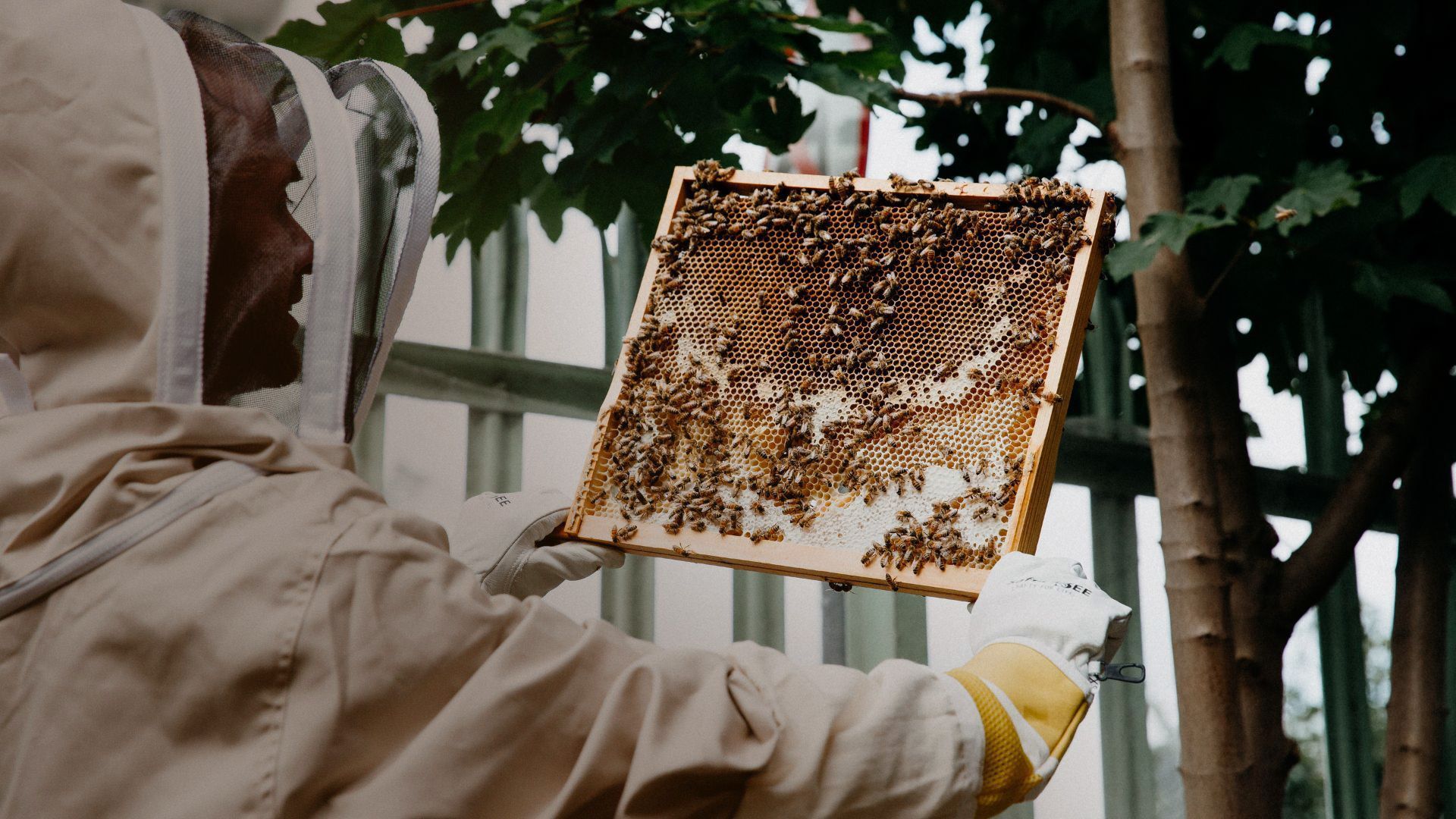
These voices don't have an opportunity to speak for themselves. They are potentially reduced to stereotypes or statistics.
These voices don't have an opportunity to speak for themselves. They are potentially reduced to stereotypes or statistics.
Gramafilm thought cooking would be a great way to open up dialogue about the presenters’ experiences; promoting Bees and Refugees’ sustainable honey while discussing the cultural and generational significance of food throughout their lives.
“We liked the idea of just having shared conversations around the dinner table,” Natalie says, explaining that they opted for honey-based cooking and interactions between Ali and his friends to tell a “deeper story”.
Using Social Media for Social Change
As director of the project, Marko Steinberg has created 12 short videos, 6 being presenter-led honey-based recipes and 6 being informal conversations between Ali and each of the presenters, who are also his close friends. He opted for a humble, homely kitchen setup when filming and followed through with this into the edit– maintaining the idea that this was a casual conversation between friends.
Marko was pleasantly surprised by the bright personalities and bonds within the friendship group when Ali and his troop of friends arrived for filming, instantly knowing he needed to capture this on camera and in the edit.
Everyone was so joyful, the energy they spread around was just contagious
Marko Steinberg – Director, Bees & Refugees
Making Recipes Into Reels
The end product was a Social Media Series showcasing recipes delivered by people with similar backgrounds to Ali’s; each episode presented by one of his close friends or fellow activists. Knowing the popularity of Instagram Stories & Reels, Gramafilm produced 6 Instagram Reels for recipes & interviews.
From fried sesame and honey chicken, to grilled chilli honey courgettes, the meals pay homage to the presenters’ origins, using ingredients and recipes to celebrate their cultures and backgrounds. “It was such a fun experience,” Ali tells us.
Ingredients:
- 3 eggs
- 65g butter, melted
- 100g sugar
- 100g all-purpose flour
- 1 tablespoon flour
- 1⁄2 teaspoon vanilla extract
- 1⁄2 teaspoon baking powder
Topping:
- 100g butter
- 100g sugar
- 100g slivered almonds
- 65g honey
- 1⁄2 teaspoon cinnamon
Farah AlHaddad’s Sweet Tooth Honey Cake
- Preheat the oven to 190°C. Spray a round baking pan with non-stick spray.
- Beat the eggs, sugar and vanilla together until it whitens. Add the melted butter and mix well.
- Sift the flour and baking powder together and add to the egg mixture and mix gently.
- Pour into the prepared pan and bake for 20 minutes.
- While the cake is baking, prepare the topping by melting the additional butter over medium heat and add the rest of the ingredients. Bring to boil, stirring constantly.
- When the first 20 minutes of baking time ends, remove cake from the oven and gently pour the topping mixture over the cake.
- Return the cake to the oven and bake another 10 minutes until completely baked.
Wanting to pass the limelight to his friends, Ali joins them in the kitchen; having candid conversations about their childhood, politics and the significance of their chosen dishes.
In one episode, Ali is joined by Farah AlHaddad as she showcases a honey cake; a dish reminiscent of home.
Farah grew up in Damascus with a family reflective of the richly diverse Syrian region. Her mother was Jordanian-Circassian, her father Syrian and her maternal grandmother, Circassian - "There are so many minoritized groups that nobody knows about or talks about"
Gramafilm's interviews captured Farah telling Ali about leaving Damascus, the recipes that bring back memories and the fear of being labelled a refugee.
In other episodes, Ali’s friends tackle topics such as diversity, freedom of expression and the culture shock of moving abroad. The team hopes the project will spread the group's “contagious energy”, while also promoting Ali’s sustainable honey and tackling the single narrative surrounding the refugee crisis.
There's always going to be a memory behind a recipe.
Ana Tapia – Producer
Marvin Kankiriho’s Spicy Honey Courgette Salad
- Put in a very hot pan the garlic, red chillies and lime halves cut side down, and grill for 3 minutes.
- Turn everything over, add the cascabel chillies to the pan, and grill for another 2 minutes, turning the cascabels once halfway, until everything is nicely charred.
- Pour the honey into the pan and cook on a medium heat for about 3 minutes. Use tongs to squeeze the juices out of the cascabel chillies and lime halves and into the mix.
- Put the courgette slices in a bowl with two tablespoons of oil and a half-teaspoon of salt. Mix and grill the courgettes for 3 or 4 minutes on each side.
- Drizzle half the honey over the courgettes on a plate.
- Spoon the chillies evenly over the courgettes, then top with the feta. Squeeze over one of the fresh lime wedges, and top with the spring onions, and a drizzle of the strained oil. Serve with the reserved honey, and lime wedges for squeezing over.
Special thanks to @Ottolenghi for the amazing recipe!
Ingredients:
- 4 small courgettes
- 5 tbsp olive oil
- Salt
- 100g feta
- 2 spring onions
Dressing:
- 2 garlic cloves
- 2 red chillies
- 2 limes
- 2 cascabel chillies (or 1 ancho chilli)
- 150g honey
- Salt
Ingredients:
- Burger buns
- Minced beef
- Red onion, White onion
- Pickles
- Salt & Pepper
- Balsamic vinegar (very important)
- Honey, Mayo, Mustard & Ketchup
Recipe:
- Slice onions into thin slices
- Soak the white onion in balsamic vinegar for 30 mins
- Caramelise the red onion by frying it on a pan with a bit of olive oil. Add balsamic vinegar once it starts to get crispy, then add a tablespoon of honey.
- Pan fry the meat and add salt and pepper.
- Make the sauce with the chopped pickles, mayo, ketchup and mustard.
- Add the onion we left to soak in the vinegar on top of the meat on the frying pan. Put the bun on top to heat it up and flip it and place it on a plate.
- On the other half of the bun add the caramelised onion and the sauce and place it on top of the other half of the bun.
- And Voila!
Want to support Bees & Refugees?
Take a look at how to get involved !
Interested in following some of these recipes? You can purchase Bees and Refugees ethically sourced, local to London honey . Supporting Refugees & Bees
The name Bees and Refugees came from the fact that bees and refugees were facing a hostile environment and were dying out. They were two vulnerable groups that were going to work together and support each other.
Ali Alzein – Founder, Bees & Refugees
